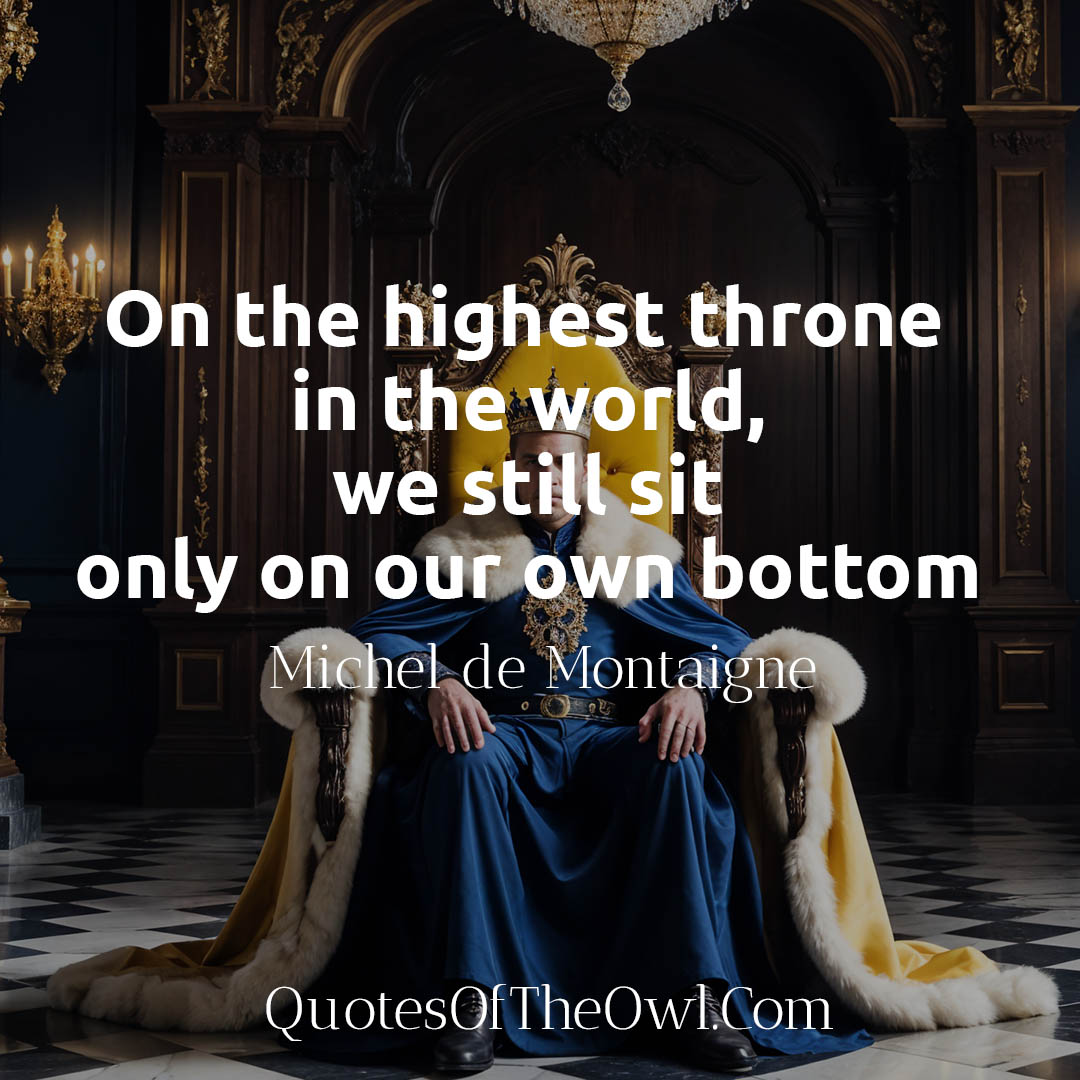On the highest throne in the world, we still sit only on our own bottom – Michel de Montaigne
In our pursuit of success, wealth, and power, it’s easy to lose sight of our true essence and place in the world. Michel de Montaigne, a renowned French philosopher of the Renaissance era, encapsulated this sentiment beautifully in his quote, “On the highest throne in the world, we still sit only on our own bottom.” This profound statement carries layers of wisdom and insight into the human condition.
Understanding the Quote
Montaigne’s quote speaks to the inherent limitation of human existence despite any outward achievements or status. Regardless of how high we ascend in society, we remain fundamentally grounded by our own humanity. It emphasizes the notion that no matter our accomplishments, we are all subject to the same vulnerabilities and imperfections.
Self-awareness and Humility
At the core of Montaigne’s message lies the importance of self-awareness and humility. By acknowledging our limitations and embracing humility, we gain a deeper understanding of ourselves and our place in the world. True greatness stems not from arrogance or self-importance but from a humble recognition of our strengths and weaknesses.
The Illusion of Superiority
In a world driven by competition and comparison, it’s easy to fall into the trap of believing in our own superiority. However, Montaigne’s quote reminds us of the fleeting nature of such illusions. Our perceived superiority is but a facade, masking the inherent equality of all human beings.
Perspective and Empathy
Central to Montaigne’s philosophy is the importance of perspective and empathy. By understanding the experiences and viewpoints of others, we cultivate a sense of empathy that transcends our own ego. Through empathy, we bridge the gap between ourselves and others, recognizing the shared humanity that binds us together.
Acceptance and Contentment
Montaigne’s quote encourages us to find solace in acceptance and contentment. True fulfillment lies not in the pursuit of external validation but in the acceptance of ourselves as we are. By embracing our inherent worthiness, we free ourselves from the relentless pursuit of societal approval.
Application in Daily Life
The wisdom of Montaigne’s quote extends beyond philosophical ponderings, finding practical application in our daily lives. In our relationships, it reminds us to approach others with humility and understanding, fostering deeper connections based on mutual respect. In our professional lives, it encourages us to strive for excellence without succumbing to the trappings of ego and arrogance. And in our personal growth journey, it serves as a guiding light, reminding us to stay grounded amidst life’s inevitable ups and downs.
Conclusion
In conclusion, Michel de Montaigne’s quote serves as a timeless reminder of our shared humanity and the importance of humility and self-awareness. It calls us to transcend the superficial trappings of success and status, embracing our true selves with acceptance and grace. By heeding Montaigne’s wisdom, we can navigate life’s complexities with authenticity and integrity, finding fulfillment in the simple act of being.

